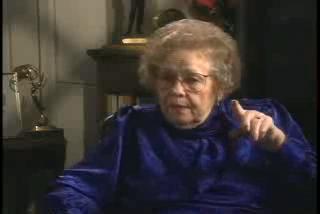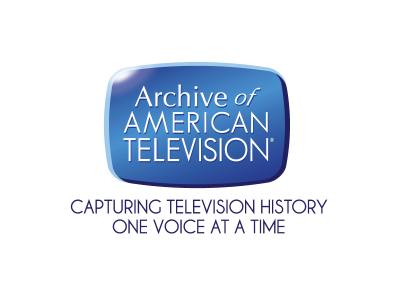"Playhouse 90" Producer Martin Manulis has Died -- His Full Archive Interview is Online
 Martin Manulis, one of the legendary producers who exemplified the "Golden Age" of television by seeking and nurturing both on-camera and behind-the scenes talent, died Friday at the age of 92. The Archive of American Television interviewed him in 1997, and in subsequent years, he was a great champion of the Archive -- donating his time to assist in the compilation of a comprehensive credits list for Playhouse 90.
Martin Manulis, one of the legendary producers who exemplified the "Golden Age" of television by seeking and nurturing both on-camera and behind-the scenes talent, died Friday at the age of 92. The Archive of American Television interviewed him in 1997, and in subsequent years, he was a great champion of the Archive -- donating his time to assist in the compilation of a comprehensive credits list for Playhouse 90.
Among the classic teleplays he produced during his 3 seasons at the helm of Playhouse 90 were:
- "The Miracle Worker," directed by Arthur Penn, written by William Gibson and starring Teresa Wright, Patty McCormack and Burl Ives
- "Requiem for a Heavyweight," written by Rod Serling, directed by Ralph Nelson and starring Jack Palance, Ed Wynn, Keenan Wynn and Kim Hunter
- "The Comedian," written by Rod Serling, directed by John Frankenheimer and starring Mickey Rooney
- "The Days of Wine and Roses," directed by John Frankenheimer, written by JP Miller and starring Cliff Robertson and Piper Laurie
Click here to access Martin Manulis' L.A. Times Obituary
Click here to access an excellent piece about the legacy of Playhouse 90 by Variety's Cynthia Littleton
Interview description:
Martin Manulis was interviewed for five hours in Los Angeles, CA. Manulis talked about the "Golden Age of Television," and the challenges of producing live television anthologies, (beginning with Climax), especially his greatest contribution to television, the critically acclaimed anthology, Playhouse 90. Manulis recalled celebrated teleplays like "Requiem for a Heavyweight," and "The Miracle Worker." He also talked about working with Jack Palance, Ed Wynn, Jack Lemmon, Claudette Colbert, Rod Serling, Tad Mosel and JP Miller. He also spoke of his later work producing The Many Loves of Dobie Gillis, and such miniseries as "Space." B-roll consisted of dozens of publicity photos taken for Playhouse 90. The interview was conducted by Morrie Gelman on June 17, 1997.














